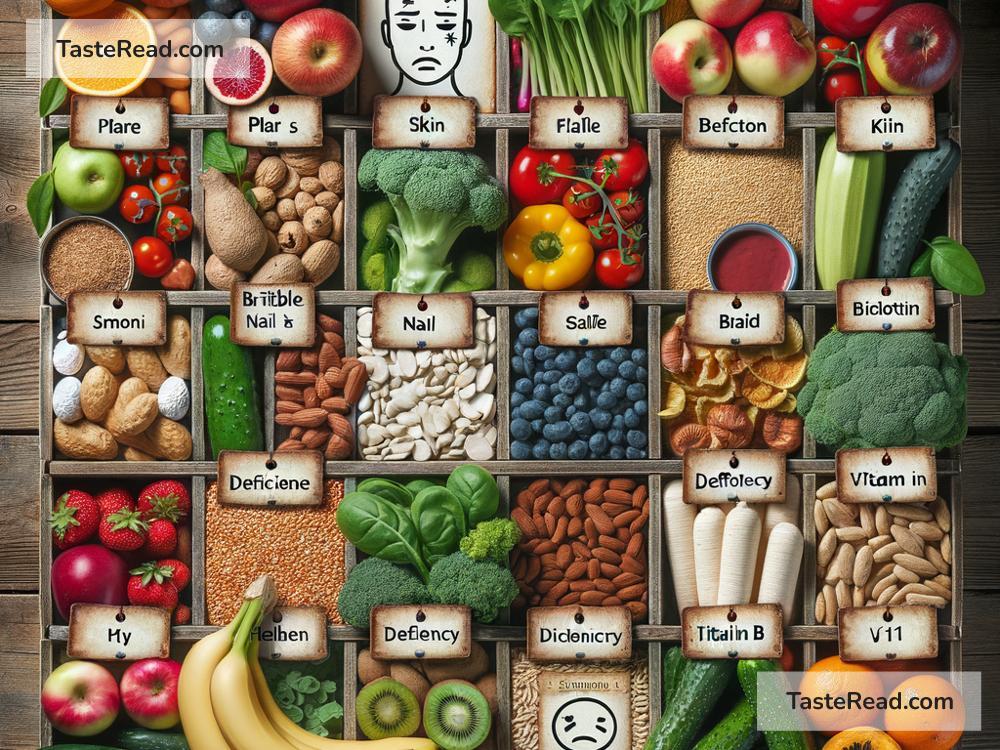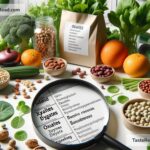How to Identify Nutrient Deficiencies: Simple Tips for a Healthier You
Have you ever felt tired, noticed strange symptoms on your skin, or wondered why your hair suddenly seems thinner? These could be signs of nutrient deficiencies. Your body needs vitamins and minerals to stay healthy and perform daily tasks. When you don’t get enough of certain nutrients, your body will send you signals in the form of symptoms. If you know what to look for, you can take steps to improve your diet and feel better.
In this article, we’ll cover the basics of nutrient deficiencies, signs to watch for, and easy ways to address them.
What Are Nutrient Deficiencies?
A nutrient deficiency happens when your body doesn’t get enough of a particular vitamin, mineral, or nutrient it needs. Nutrients are found in the food you eat. They serve important roles, like giving you energy, keeping your skin glowing, strengthening your immune system, and much more. When your diet lacks variety or you don’t eat enough of certain foods, your body may miss out on these building blocks.
Common Signs of Nutrient Deficiencies
Your body is smart and lets you know when something is wrong. Here are some common signs that could indicate a nutrient deficiency:
1. Fatigue (Feeling Extremely Tired)
Feeling like you have no energy, even after a good night’s sleep? This could be linked to several deficiencies, including:
– Iron: Needed for making red blood cells, which carry oxygen throughout your body.
– Vitamin B12: Helps keep your nerves healthy and makes energy for your body.
2. Hair Loss or Weak Hair
Noticing more hair strands on your brush? Your hair thinning might be due to low levels of:
– Biotin (Vitamin B7): Essential for healthy hair growth.
– Iron: Important for strong hair and good circulation to your scalp.
3. Dry Skin or Rashes
Dry or flaky skin, eczema, or even strange rashes can be caused by:
– Vitamin A: Helps keep your skin hydrated.
– Vitamin E: Protects your skin from damage.
– Essential Fatty Acids (like Omega-3): Keep your skin soft and healthy.
4. Brittle Nails or White Spots
If your nails break easily or have odd white markings, this may be a sign of:
– Zinc: Supports nail and skin health.
– Iron: Contributes to strong nails.
5. Cracks Around the Mouth
Painful cracks in the corners of your lips or tongue inflammation could mean:
– Vitamin B2 (Riboflavin): Important for healthy tissues.
– Iron: Plays a role in skin health and wound healing.
6. Weak Bones or Dental Issues
Pain in your bones or frequent tooth problems may point to:
– Calcium: Needed for strong bones and teeth.
– Vitamin D: Helps your body absorb calcium.
7. Muscle Cramps or Twitching
Random muscle spasms or cramps might be caused by:
– Magnesium: Supports proper muscle function.
– Potassium: Helps keep muscles working smoothly.
8. Vision Problems
If your night vision gets worse or your eyes feel dry, you may lack:
– Vitamin A: Helps maintain good eyesight and eye health.
How to Identify Nutrient Deficiencies
Step 1: Pay Attention to Your Symptoms
Listen to your body. If you notice persistent symptoms like fatigue, dry skin, or hair loss, don’t ignore them. These could be your body’s way of telling you that it needs something.
Step 2: Look at Your Diet
Do a quick check of what you eat regularly. Are you missing fruits, vegetables, lean proteins, or whole grains? If you often eat processed foods or skip meals, your nutrient levels might suffer.
Step 3: Talk to a Doctor
Sometimes it’s hard to pinpoint the exact deficiency. Doctors can perform tests, like blood work, to find out if you’re low in iron, vitamin B12, or other key nutrients. They can also recommend supplements to help fill the gaps.
How to Prevent Nutrient Deficiencies
Good news—it’s easy to prevent deficiencies by eating the right foods and making small lifestyle changes.
1. Eat a Balanced Diet
Include a variety of foods in your meals. Make sure to eat:
– Fruits and Vegetables: They are loaded with vitamins and antioxidants.
– Whole Grains: Provide B vitamins and fiber.
– Lean Proteins: Help maintain muscle and energy levels.
– Dairy: Gives you calcium and vitamin D for strong bones.
2. Take Supplements (If Needed)
If you struggle to meet your nutrient needs with food alone, consider taking vitamin or mineral supplements. Always consult your doctor before starting supplements to ensure they’re right for you.
3. Stay Hydrated
Drinking water can improve the way your body absorbs and uses nutrients.
4. Get Regular Checkups
Routine health checks can catch deficiencies early before they lead to more serious problems.
5. Stay Active
Exercise improves circulation, which helps your body deliver nutrients to where they’re needed most.
Final Thoughts
Your body is like a car—it needs fuel (food and nutrients) to run properly. If you’re missing key nutrients, you may notice small “warning lights” in the form of symptoms like fatigue, weak hair, or dry skin. Pay attention to these signals, check your diet, and consult a doctor when necessary. Small changes in your eating habits can make a big difference to your overall health.
So, take the time to care for your body, and it will thank you by feeling more energetic, strong, and vibrant every day.


